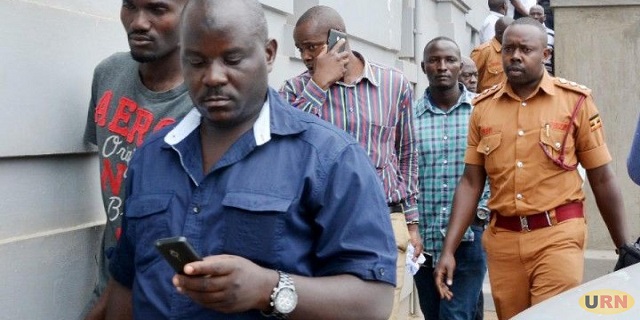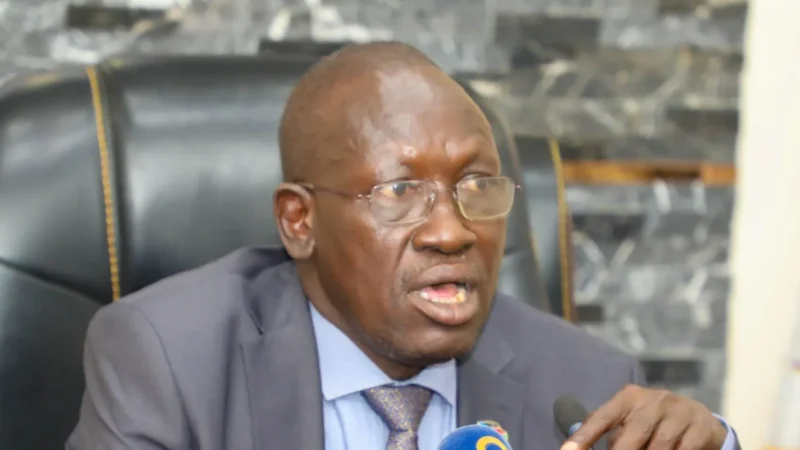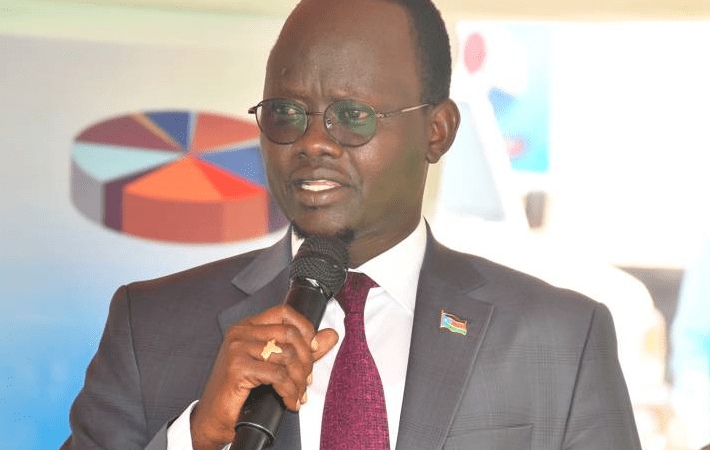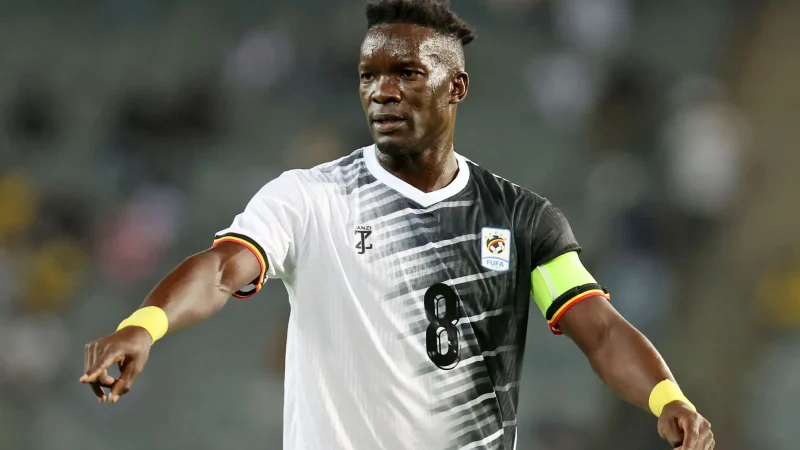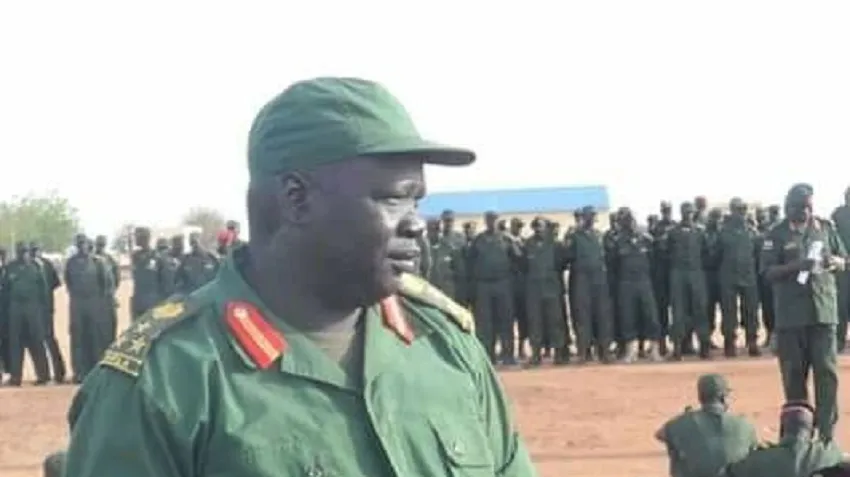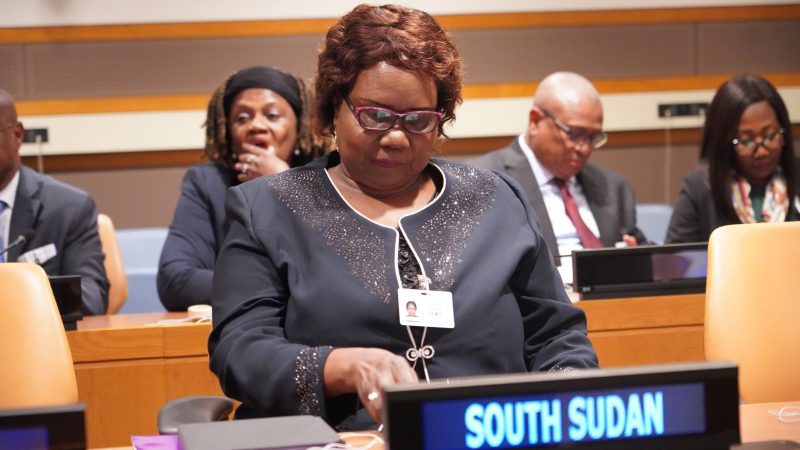Kenya has denied reports suggesting a rebel leader participating in South Sudan peace talks had withdrawn, clarifying it held consultations with different groups reaffirming participation in the process.
On May 20, 2024, Gen Stephen Buoy Rolnyang, chairman and commander in chief of South Sudan Patriotism Movement/Army (SSPM/A) threatened to withdraw from the talks, amid claims that security operatives planned to assassinate him.
The rebel leader alleged that a known operative usually used by high-level officials in the government of President Salva Kiir, also identified in the United Nations panel of investigators report, had visited him at his hotel, sparking commotion before both Kenyan and South Sudanese security agents intervened.
He said John Top Nyerew is an operative known for kidnapping and deporting political and military dissidents to Juba where they are either detained or killed.
“John Top Nyerew is the one who has been accused of kidnapping Dong Samuel and Aggrey Idris from Nairobi here and got killed in Juba. Considering the above security concerns, Juba is not ready for any peace talks. Their objective is to lure the opposition to Kenya and assassinate them one by one as I told you last time in my letter in response to your invitation letter”, explained Rolnyang.
He added, “I, therefore, request your esteemed office that the SSPM/A/SSUNA team withdraw from the talks and needs immediate evacuation from Nairobi back to where we came from”.
Sudan Tribune could not independently verify the accuracy of these allegations.
In a statement, however, the Kenyan Ministry of Foreign and Diaspora Affairs informed the pubic that it conducted a joint investigation with all the parties, civil society, stakeholders and consulted the hotel management security which confirmed that the peace process is being conducted in a secure environment.
“The regrettable incident circulating in the social media is under investigation by the relevant security agencies of the Republic of Kenya and the outcome of the same shall be communicated publicly,” the mediation team said in a statement.
The team further directed delegations representing the various groups and actors to observe the agreed and established rules of procedures, assuring that it will continuously be in contact with the parties to review operational, administrative, and security matters and ensure that talks are held in a conducive environment.
In the past, however, the opposition, civil society actors, faith-based groups and relatives of key opposition leaders have claimed in several interviews that operatives, acting on the directives of individuals in the Transitional Government of National Unity have been conspiring and plotting with Kenyan security services to assassinate Rolnyang and former army chief of staff, Gen. Paul Malong Awan.
Malong is currently the chairman of South Sudan United Front/Army (SSUF/A).
The former army chief has a long political dispute with the Director General of the Internal Bureau of National Security Services, Akol Koor Kuc while Rolnyang has communal dispute with Tut Kew Gatluak, the presidential security affairs advisor.
Rolnyang also had disputes with ex-Unity state governor, Joseph Nguen Monytuil.
Both Malong and Rolnyang were close allies of President Kiir before they fell out.
Rolnyang was earlier arrested, tried in the court, dismissed from the military and eventually stripped of his army ranks before a presidential decision pardoned him.
He later fled to Kenya, joined Malong’s SSUF before he quit to form SSPM.
Their participation in the mediation process as part of the holdout opposition group, has generated interest for some of their political competitors with ties, command and control of South Sudan’s security services, an institution that has established a reputation for kidnapping and conducting political assassinations.
Sources claim a handful of operatives are in Kenya as members of the delegation while others are in hotels and venue of the talks to monitor mediation activities.
Sheraton and Crown Plaza are some of the hotels allegedly occupied by agents.
The mediation team expects negotiations to culminate to in a positive outcome and if successful, Gen. Malong, Rolnyang and Pagan Amum, who now leads his outfit operating under the banner of Real SPLM (Sudan People’s Liberation Movement) could return to the country and rejoin the government.
These political developments, analysts say, are likely to cause rift and changes in the government, with some powerful individuals close to the president expected to lose assignments to pave way for these individuals involved in the peace talks. Consequently, this is causing fear and resistance to the successful mediation process seeking to return competitors to powerful positions in the government.


